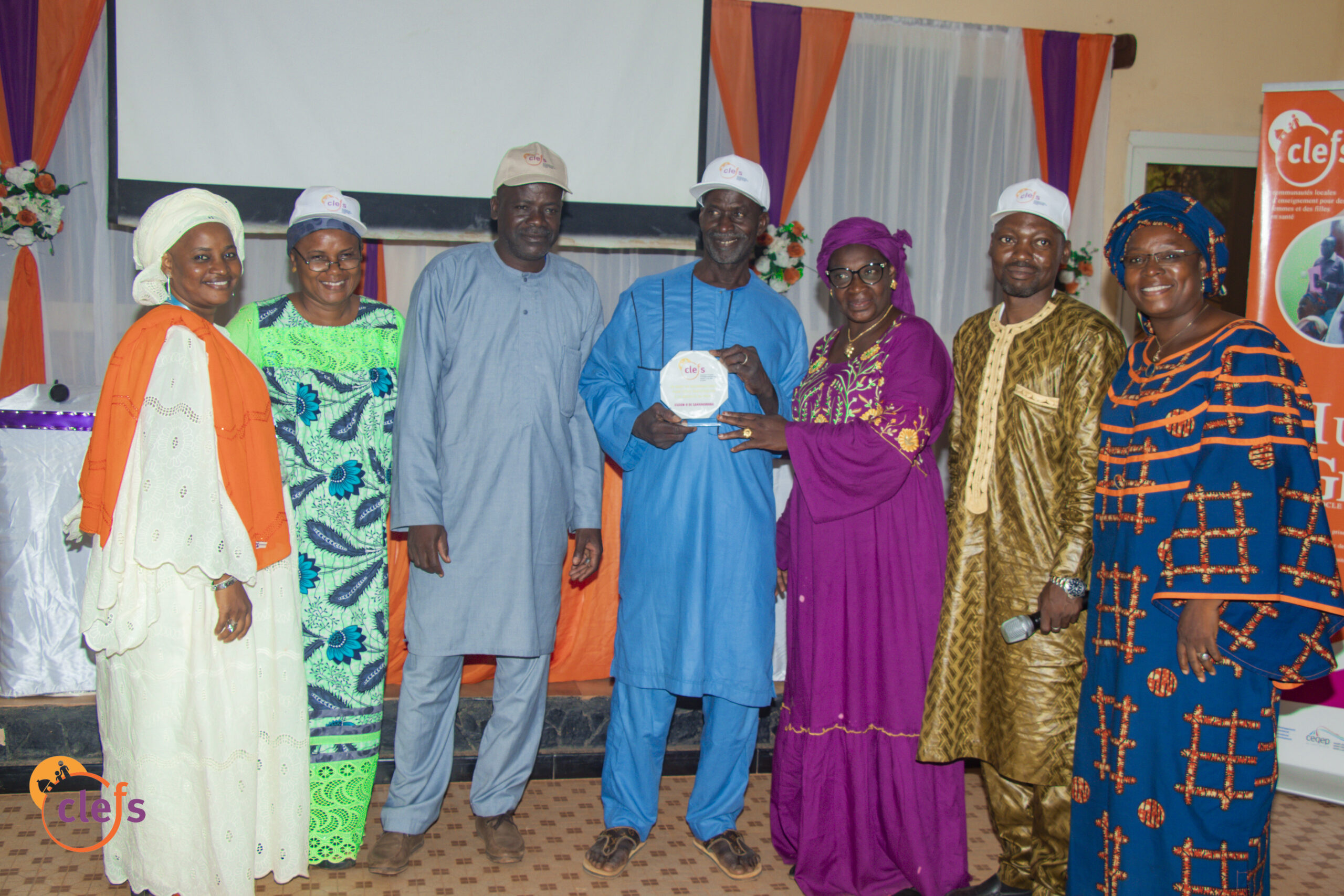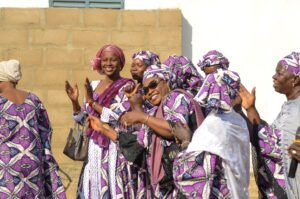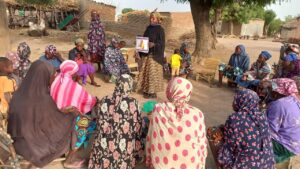News

CLEFS Project Partners Celebrate Five Years of Impact in Mali
10 June 2025
In June 2025, national partners of the “Local Learning Communities for Women’s and Girls’ Health (CLEFS)” project came together to mark the official clonclusion of this major initiative. This milestone event was an opportunity to recognize the unwavering dedication of everyone involved and to celebrate the achievements of the past five years.
An Innovative and Inclusive Approach to Women’s and Girls’ Health
Launched in 2020, the CLEFS project was led by a consortium headed by Santé Monde, in collaboration with Cégep de Saint-Jérôme and the University of Sherbrooke. Funded by the Government of Canada with a contribution of CAD 21.2 million, the project aimed to reach 1.5 million people across Mali.
At its core, CLEFS sought to improve primary health care (PHC) and sexual and reproductive health and rights (SRHR) for women and girls in Mali.
Building on the success of the previous DÉCLIC project (2010–2018), CLEFS developed a unique approach focused on:
- Establishing a network of seven University-Community Health Centers (CSCom-U) as hubs for care, education, and research
- Training interdisciplinary teams tailored to community needs, especially those of women and girls
- Integrating mental health into frontline services to better support vulnerable populations, including survivors of gender-based violence, displaced persons, and individuals experiencing post-traumatic stress
- Promoting transformative practices that empower women and girls, such as supporting Women Users’ Committees (CFUs)
- Introducing new technologies to improve care delivery, including digital patient records and tele-expertise

Tangible Results
In the regions of Bamako, Kayes, Koulikoro, Ségou, and Sikasso, communities experienced real change. Many women and girls, particularly in rural areas, now have better access to sexual and reproductive health and rights services, including family planning and cervical cancer screening.
The project team and its partners are proud of the significant progress made. Key outcomes include:
- A 28% reduction in violence against women — a major step toward safer, more respectful communities
- 99% of surveyed women and girls reported satisfaction with PHC/SRHR services, particularly in terms of patient relations, respect, confidentiality, and overall quality
- 72% of women and girls now say they can make their own decisions about their health—up from 37% and 44%, respectively, at baseline
- 98% of health professionals now feel equipped to provide PHC/SRHR services that meet the specific needs of women and girls

Collective Resilience in the Face of Challenges
The project unfolded in a complex environment, shaped by the COVID-19 pandemic and ongoing security challenges. Thanks to the dedication of its team and partners, CLEFS adapted and maintained essential activities while working collaboratively to identify sustainable solutions that strengthen the resilience of the health system.
A Lasting Legacy
Although the project has come to an end, its legacy lives on. The structures established, professionals trained, and partnerships built provide a strong foundation for continued progress in women’s and girls’ health in Mali.
The CSCom-Us will continue to serve their communities, supported by skilled and committed teams, more inclusive governance structures, and highly motivated Women Users’ Committees (CFUs).
For Dr. Bayo Coulibaly, Technical Director of the CSCom-U in Konobougou, the CLEFS project sparked genuine enthusiasm among partners and catalyzed lasting, positive change for Mali’s population:
“What I take away from the CLEFS project is a win-win partnership. It gives us hope that progress in health services will continue, with all stakeholders engaged and mobilized to meet community needs.”
The conclusion of the CLEFS project thus marks the end of a chapter, but also the beginning of a new era, one in which the achievements of the past five years will continue to bear fruit in Malian communities.
Acknowledgment
Santé Monde extends its heartfelt thanks to its team in Mali, Cégep de Saint-Jérôme, the University of Sherbrooke, and Global Affairs Canada for their unwavering support. Special thanks to our Malian partners—ministries, training institutions, health facilities, and local communities—whose steadfast commitment was at the heart of CLEFS’s success.
Learn more about CLEFS, a project funded by the Government of Canada through Global Affairs Canada.
